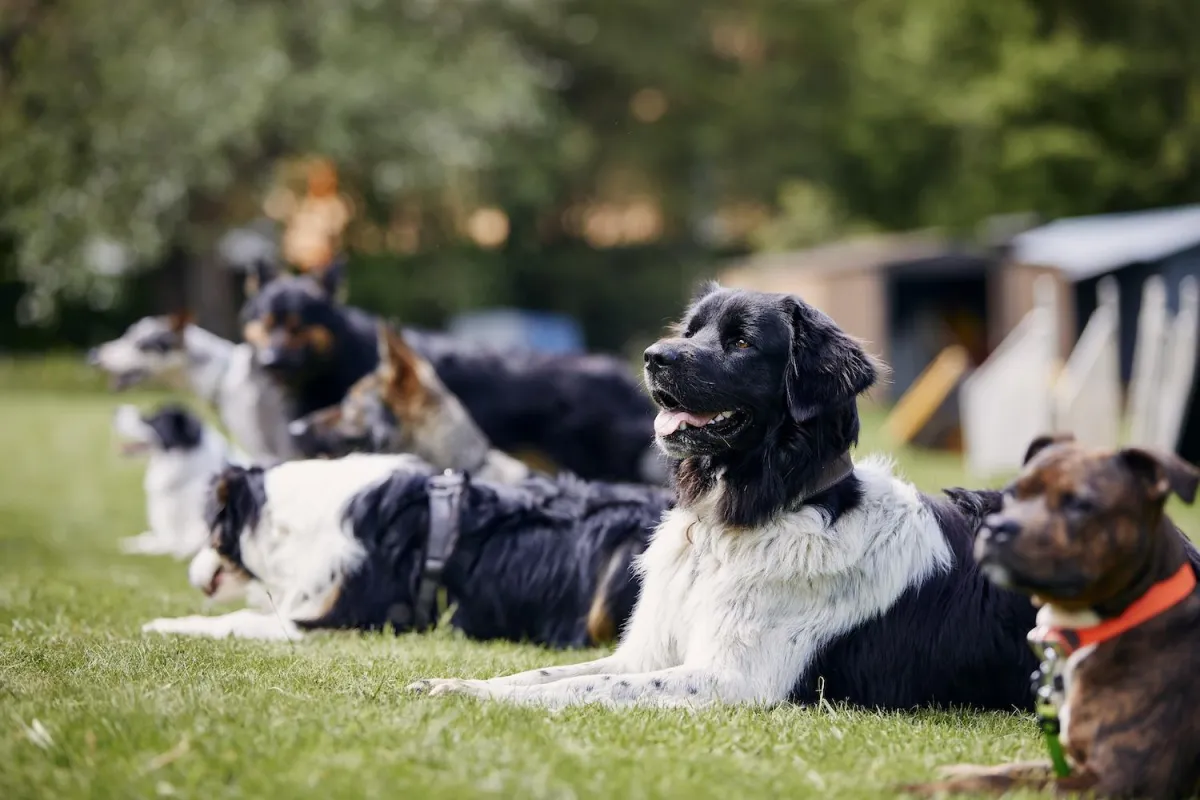Our Blog

GDV (Gastric Dilation-Volvulus)
Introduction:
Hey there furry family! I have been asked to provide information on "GDV" or bloat, which can lead to the stomach to twist. As stated in the title GDV or Gastric Dilation-Volvulus is a condition in which the stomach begins to enlarge due to rapid digestion of food and/or water (Gastric Dilatation-Volvulus | American College of Veterinary Surgeons - ACVS, n.d.).
1. Requested information.
The following is a list of signs and symptoms and prevention methods to look for according to (Gastric Dilatation-Volvulus | American College of Veterinary Surgeons - ACVS, n.d.):
an anxious look or looking at the abdomen
standing and stretching
drooling
distending abdomen
retching without producing anything
Additionally, you should know your dog well enough to know whether they are acting normal or not, and if all else fails get them to the vet immediately! However, there are some things to do which can help prevent (not stop) these events from occurring:
Slow feeder bowls
Allowing 1-2hrs of digestion prior to exercise/training of any type
Water intake should be rationed during exercise/training to frequent small amounts
Acclimate your dog to the current conditions of weather and geography
Gastropexy (securing the stomach to the side of the chest)
To wrap this up, I would suggest asking your vet or vet tech to give you some training on basic dog care when vet care is not available. Also, feel free to reach out and I will share any information I have learned while in or out of the service...I would rather you and your dog be safe, healthy, and happy!
References
Gastric Dilatation-Volvulus | American College of Veterinary Surgeons - ACVS. (n.d.). https://www.acvs.org/small-animal/gastric-dilatation-volvulus
Our Blog

GDV (Gastric Dilation-Volvulus)
Introduction:
Hey there furry family! I have been asked to provide information on "GDV" or bloat, which can lead to the stomach to twist. As stated in the title GDV or Gastric Dilation-Volvulus is a condition in which the stomach begins to enlarge due to rapid digestion of food and/or water (Gastric Dilatation-Volvulus | American College of Veterinary Surgeons - ACVS, n.d.).
1. Requested information.
The following is a list of signs and symptoms and prevention methods to look for according to (Gastric Dilatation-Volvulus | American College of Veterinary Surgeons - ACVS, n.d.):
an anxious look or looking at the abdomen
standing and stretching
drooling
distending abdomen
retching without producing anything
Additionally, you should know your dog well enough to know whether they are acting normal or not, and if all else fails get them to the vet immediately! However, there are some things to do which can help prevent (not stop) these events from occurring:
Slow feeder bowls
Allowing 1-2hrs of digestion prior to exercise/training of any type
Water intake should be rationed during exercise/training to frequent small amounts
Acclimate your dog to the current conditions of weather and geography
Gastropexy (securing the stomach to the side of the chest)
To wrap this up, I would suggest asking your vet or vet tech to give you some training on basic dog care when vet care is not available. Also, feel free to reach out and I will share any information I have learned while in or out of the service...I would rather you and your dog be safe, healthy, and happy!
References
Gastric Dilatation-Volvulus | American College of Veterinary Surgeons - ACVS. (n.d.). https://www.acvs.org/small-animal/gastric-dilatation-volvulus
Call (505) 421-4129
Email: rcklaird@gmail.com
Site: ricksk9.com

